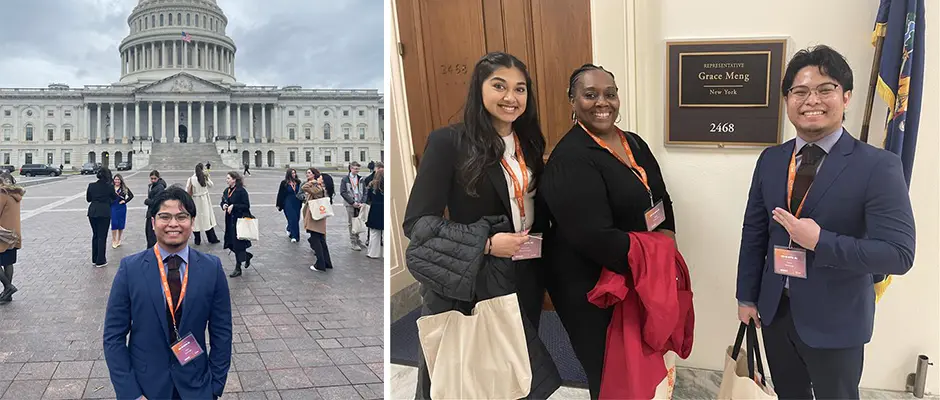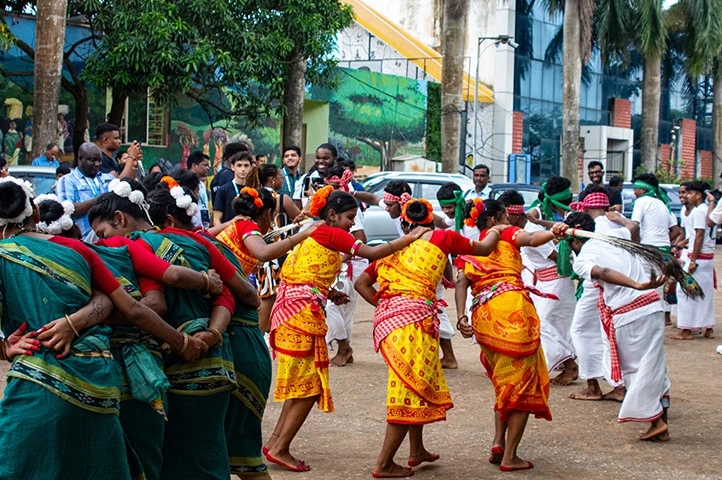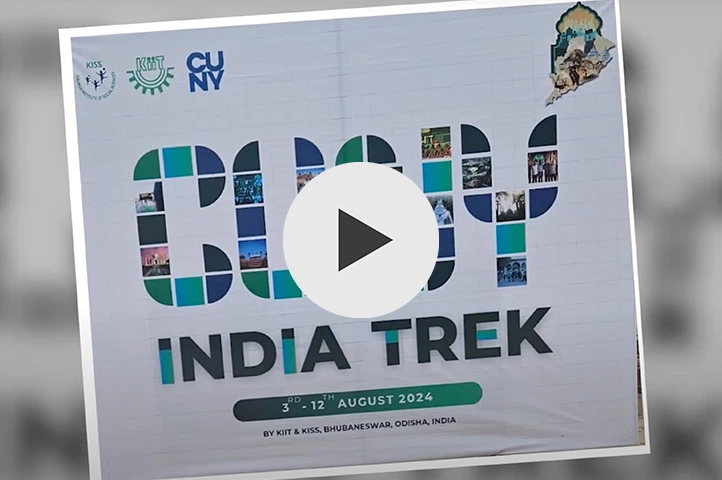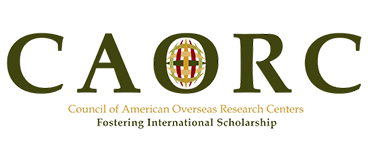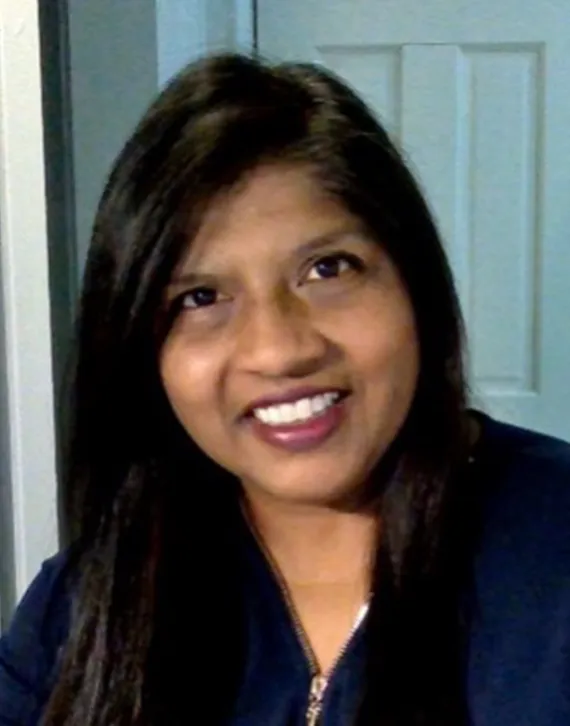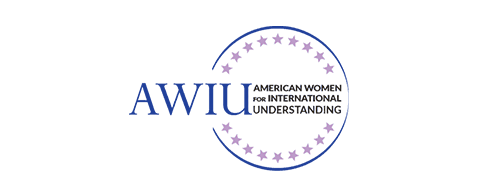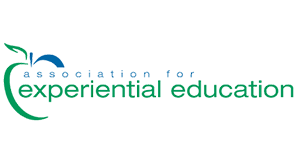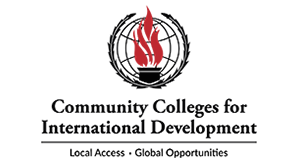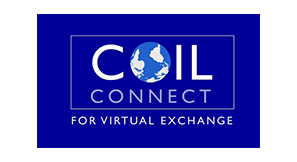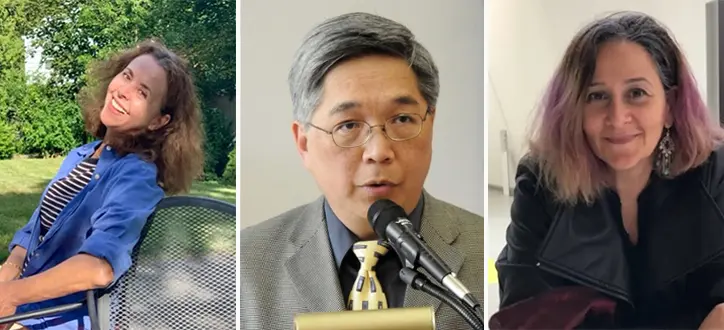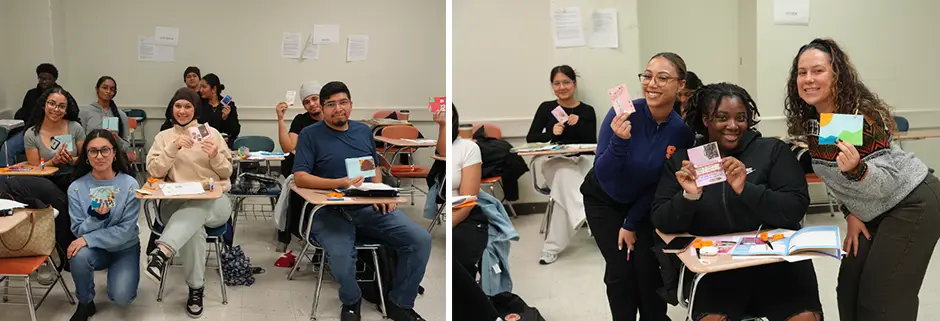Global and Experiential Learning
Contact Us
Dr. Tuli Chatterji
Dr. Maria Savva
Dr. Olga Aksakalova (On Sabbatical)
Quick Navigation
Upcoming Events
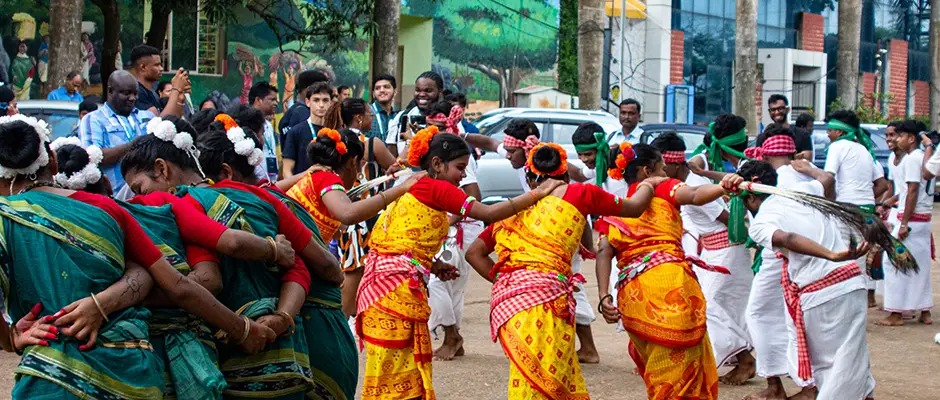
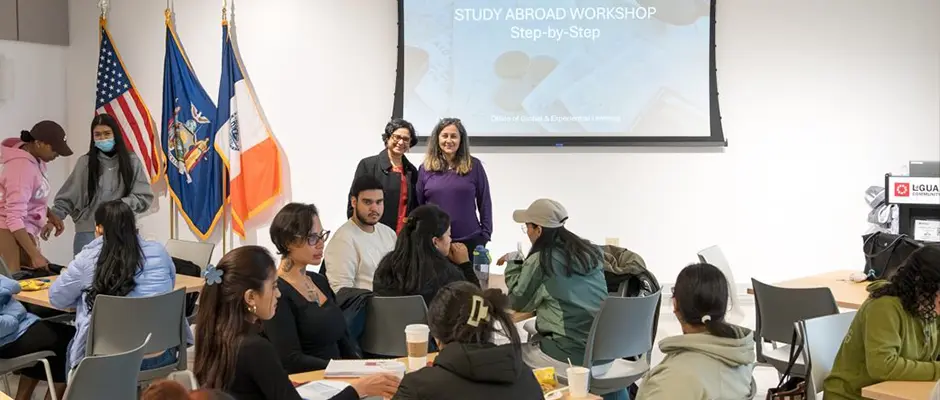
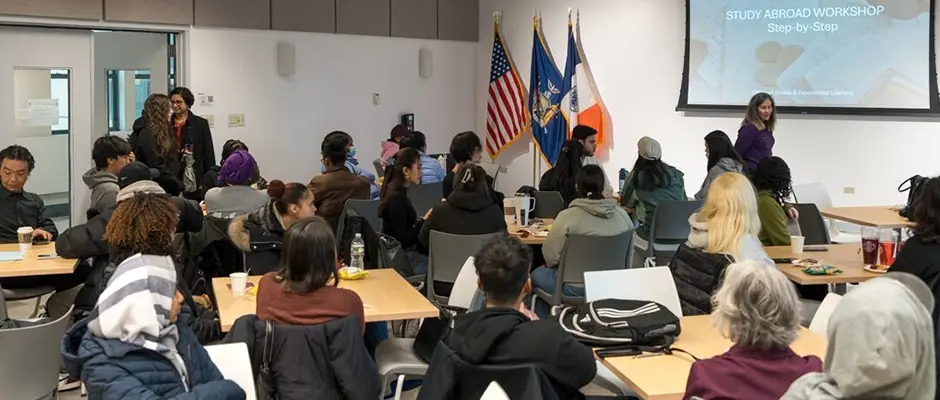
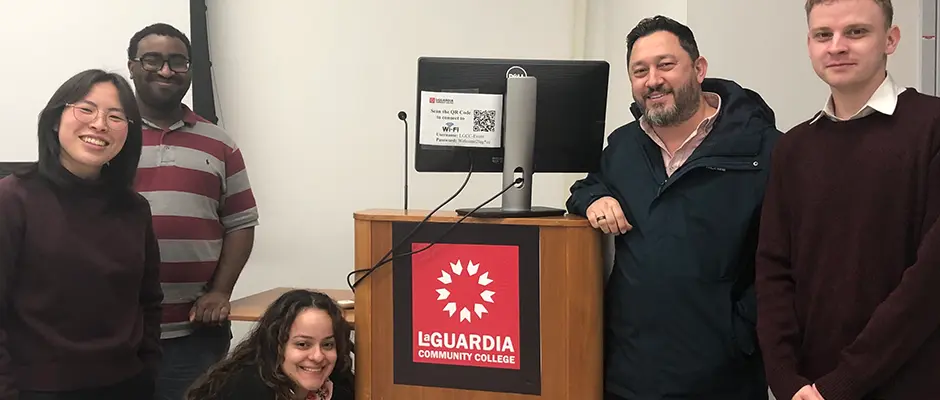
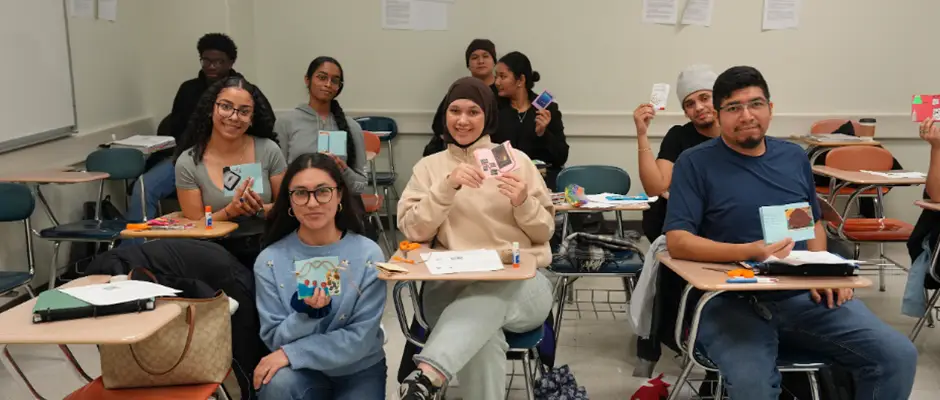
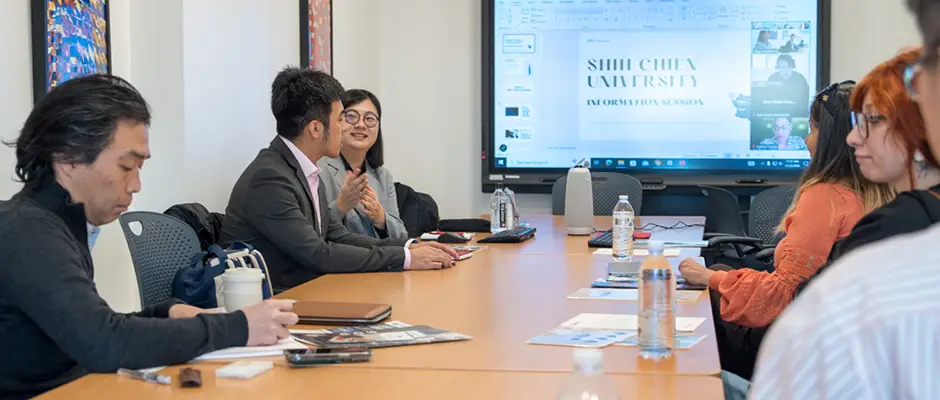
The mission of Global and Experiential Learning (GEL) is to support a wide range of global and experiential learning initiatives that aim to empower faculty, staff and students to serve as agents of positive change in their local and global communities. Through comprehensive resources, professional development opportunities, and related events, GEL will serve as a platform for the college community to facilitate global engagement and connect classroom learning with direct experience.

LHI Student Visits Capitol Hill
In early March, Carlo John Domingo, an engineering major, represented the LaGuardia Humanitarian Initiative (LHI) and the college on Capitol Hill. Through LHI’s global partner, CARE International, Carlo advocated for international assistance with members of Congress and their staff. Now in its third year, the program provides student representatives the opportunity to strengthen leadership, communication skills, and advocate for global and local issues. As a “Designated Advocate” for CARE International, Carlo shared his personal story of growing up in the Philippines and how U.S. international aid helped his family overcome poverty and migrate to the U.S. This was particularly relevant as USAID funding is currently frozen.
In meetings with staff members of Senators Charles Schumer and Kirsten Gillibrand, Carlo advocated to protect U.S. funds for international programs, sharing his research which highlighted the impact of humanitarian decisions on global stability and U.S. security. The LaGuardia Humanitarian Initiative’s focus on global learning helps students connect classroom knowledge, community needs, and career goals to propose solutions for both local and global issues.
Study Abroad
Expanding Student Access to Study Abroad (EIS216)
Students interested in study abroad opportunities are invited to enroll in EIS216: International Schooling in Global Contexts which is a three-credit course counting towards the Flexible Core requirements (World Cultures and Global Issues and/or Additional Core). Students from all majors are welcome and no prior knowledge of education is needed.
Students who enroll in the course will learn about CUNY study abroad programs that are available to them and will receive support preparing and writing study abroad scholarship applications to help fund their travels. Examples of some study abroad scholarships that students can apply to include (but are not limited to):
- The Gilman Scholarship can be used towards any credit bearing study-abroad program.The award is typically $5,000, with an additional $1000 offered for STEM-related projects and/or critical need language study. Students must be PELL Grant recipients.
- Critical Language Scholarship involves a fully funded overseas language study abroad program administered through the US Department of State. Students who receive this scholarship travel overseas during the summer months with a cohort of other US students selected to study the same language. Any student who is a US citizen can apply, there are no income level restrictions.
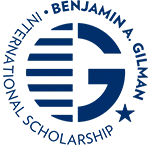
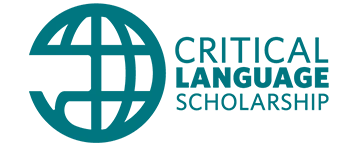
Study Abroad Experiences
Trip to Japan
The U.S. Department of State has announced the 2024 recipients of the Benjamin A. Gilman International Scholarship, awarded to American undergraduate students from across all 50 states. Among this year’s distinguished awardees are two of our very own LaGuardia ASAP students: Quashawna Hutcherson and Laniel Collazo. Both Quashawna and Laniel are enrolled in the Japanese Option and worked on their scholarship essays while taking the course EIS216: International Schooling in Global Contexts. They will be both be travelling abroad to study Japanese language and culture at Ritsumeikan University in Summer 2025.
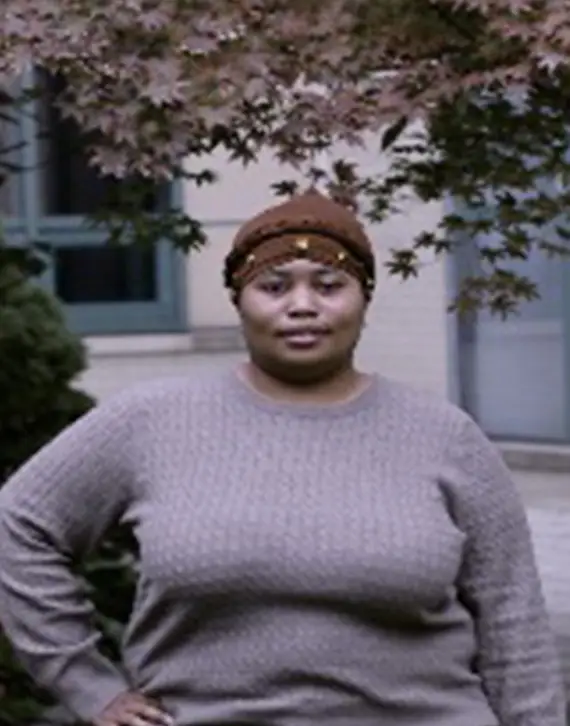
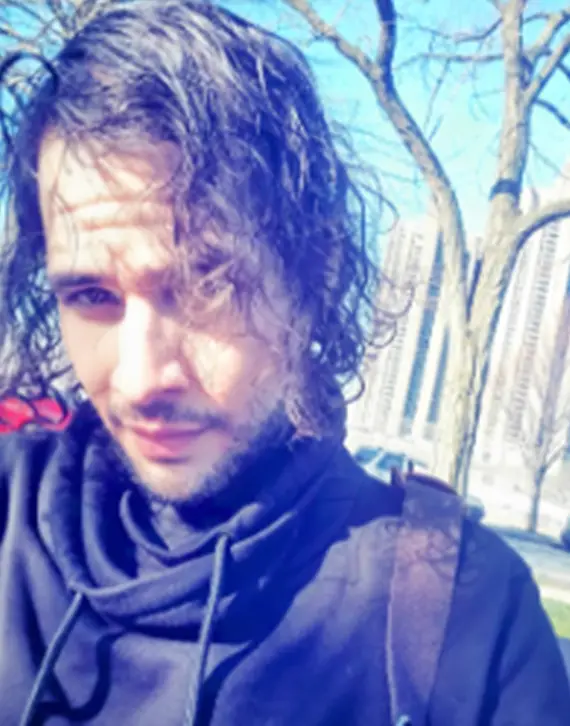
Trip to India
Journey to India with Joianne Bittle, an Environmental Science student here at LaGuardia! Thanks to sponsorship from Global and Experiential Learning and a CUNY grant sponsored program, Joianne travelled to India August 2- 20, 2024. While studying abroad, Joianne engaged in sustainability and cross-cultural diplomatic activities in Mumbai, New Delhi and Odisha. Other activities included visiting the Taj Mahal; engaging in yoga/meditation activities, installing a solar powered weather station; using mobile backpack weather stations to monitor local weather and converting plastic into diesel fuel.
Expanding Faculty Access to Study Abroad
In recent years, several LaGuardia faculty have received fellowship awards from the Council of American Overseas Research Centers (CAORC). This spring, CAORC program director Jeff Badger joined LaGuardia faculty and staff to discuss short-term and fully funded opportunities to Bangladesh, India and Senegal. Faculty and/or staff interested in applying can access the full recording here.
LaGuardia leads with fourth faculty member to be awarded seminar fellowship with the Council of American Overseas Research Centers
Professor Kattekola of LaGuardia’s English Department is one of only twelve faculty members from US community colleges and minority-serving institutions selected to travel to India in January 2025 to participate in “Exploring Sustainability through Urban and Agricultural India”. The seminar will focus on the varying economic, cultural, social, and environmental pressures confronting emerging cities as Indians migrate to urban areas in search of work and opportunities. Balancing quality economic opportunities and decent standards of living against increased pressures on the environment, energy resources, and threatened cultural sites are some of the topics covered as faculty travel through Delhi, Chandigarh, Amritsar, Jaipur and Jodhpur.
Previous award members include:
- Professor Habiba Boumlik, Education & Language Acquisition (2024): Senegal
- Professor Maria Savva, Education & Language Acquisition (2023): India
- Professor Robin Kietlinski, Social Sciences (2019): India
United Nations Academic Impact Program
Faculty are encouraged to showcase and promote their work through the United Nations Academic Impact Program. We encourage projects that both directly and indirectly address either the 10 UNAI Principles or the 17 Sustainable Goals set by the United Nations. In the past, projects have included classroom lesson plans, co-curricular events, or experiential learning. You do not have to teach a global learning assigned course in order to submit your work; a global theme/issue is the only requirement.
For more information, please contact LaGuardia liaisons to the UNAI: Thomas Cleary, Library, (tcleary@lagcc.cuny.edu) and Stefania Dinu, Institutional Advancement, (sdinu@lagcc.cuny.edu). You can review and explore UNAI materials available to you via https://guides.laguardia.edu/UNAI.
The LHI-American Women for International Understanding (AWIU) partnership provides faculty with opportunities to design experiential learning research projects with an international partner. This opportunity is offered only in Fall and extends to one faculty and two female students. For more information, email Ellen Quish equish@lagcc.cuny.edu.
GEL Pedagogy Roundtable Series
The GEL Pedagogy Roundtable Series is offered every semester for faculty to enrich their classroom practice with global and experiential learning activities.
- Fall 2023: Teaching about Current World Events
- Spring 2024: Integrating United Nations Sustainable Development Goals across Disciplines
- Fall 2024: Exploring Opportunities in the Fulbright Program
Featured Seminars
GEL and CTL are pleased to support the following seminars:
Community Based Learning (CBL) is a pedagogical approach where students learn through active experiences in their community. Employing CBL strategies in college courses can play a vital role in achieving learning outcomes. CBL gives students a sense of purpose and makes the subject matter relevant to their everyday lives. Adopting a CBL approach keeps students engaged and motivated, while developing their communication and leadership skills. This approach may help facilitate interdisciplinary and collaborative projects for faculty, enhancing their research and publication opportunities while providing professional recognition. This seminar will help faculty develop assignments based on this pedagogical approach. Starting with the theory and philosophy behind experiential learning, participants will be exposed to the benefits of CBL and will be provided with examples and avenues for integration in their courses, and ultimately, they will develop interactive assignment projects that will be used in their courses. The workshop series will conclude with a showcase where participants can share their finished projects/assignments.
Co-facilitators: Daniel Boudon and Neetu Kaushik, Social Science
Eligibility: Full-time and part-time faculty in Academic Affairs.
Support: Contingent upon attendance and active participation in all seminar activities, each Academic Affairs full- time faculty participant will receive a stipend of $600. Adjunct faculty may receive the equivalent as non-teaching pay if eligible, or professional development funds to support conference attendance or other allowable PD activities/items.
Dates: Four sessions and a showcase on Fridays from 11:00 – 1:00 pm on 9/27, 10/18, 11/1, 11/15, 12/6 Showcase
*Note: All sessions including showcase will be remote.
Inquiries: Daniel Boudon and Neetu Kaushik.
The seminar aims to introduce faculty to experiential learning (EL) and offer support with designing course activities and assignments using the LaGuardia Humanitarian Initiative (LHI) as an applied example. As an interdisciplinary, hands-on seminar, we will explore how to integrate experiential learning opportunities into our personal pedagogy. Participants will be introduced to the theory and praxis of LHI, which aligns with the Association of Experiential Education and CUNY’s vision of EL, discuss its strategic goals, and review aligned examples that demonstrate successful implementation of classroom learning in real-life settings. The seminar will foster existing and new strains of experiential learning, including curricular, co-curricular, and community outreach projects that benefit students with transfer and career readiness. In addition, through backward design workshops, participants will create discipline-specific low-stakes and high-stakes EL modules. Finally, participants will be introduced to assessment tools at various stages of assignment implementation to gauge the effectiveness of the experiential learning assignment or activity.
Co-facilitators: Tuli Chatterji (English), Claudette Davis (Natural Sciences) and Dana Trusso (Humanities)
Eligibility: Full-time and part-time faculty in Academic Affairs.
Support: Contingent upon attendance and active participation in all seminar activities, each Academic Affairs full- time faculty participant will receive a stipend of $600. Adjunct faculty may receive the equivalent as non-teaching pay if eligible, or professional development funds to support conference attendance or other allowable PD activities/items.
Dates: Fridays from 11:00 -1:00 pm on Zoom on 3/14, 4/11, 5/16, and 6/6.
Inquiries: Tuli Chatterji, Claudette Davis, and Dana Trusso.
Collaborative Online International Learning (COIL) is a teaching practice whereby faculty in geographically and culturally remote spaces, usually different countries, work closely on designing a unit of scaffolded assignments that engage their students virtually in collaborative tasks via digital tools, such as Zoom, Slack, and Padlet.
The seminar will introduce participants to COIL pedagogy and support them in developing a COIL project with an international partner around an issue of global significance as outlined in the United Nations Sustainable Development Goals. The seminar will be supported by the Undergraduate International Studies and Foreign Language program (UISFL) grant. This will be a third iteration of a COIL seminar funded by the UISFL grant. At LaGuardia, COIL is supported by the Office of Global and Experiential Learning (GEL) and the Center for Teaching and Learning (CTL).
This COIL seminar will benefit participants because it underscores LaGuardia’s commitment to global learning and introduces a pedagogy that can foster career readiness skills among students. The seminar will provide a space for faculty to continue enhancing their pedagogy and advancing the educational experiences of their diverse student population. By emphasizing intercultural empathy, respect for diversity and perspective taking, COIL cultivates the principles of diversity, equity and inclusion, and it serves as a strong platform to implement culturally relevant pedagogy. COIL is also a form of experiential learning, as it facilitates an authentic interaction and collaborative problem-solving with the international community and emphasizes critical reflection.
Participants will:
- Design a specific COIL project that aligns with their existing course learning outcomes, program learning outcomes in an impactful way and emphasizes United Nations Sustainable Development Goals;
- Expand their ability to create course projects that challenge monolithic and essentialist views of culture; foreground student agency; and bridge students’ academic and non-academic identities;
- Enhance their assignment design skills in relation to the College’s Core Competencies and Abilities, especially Global Learning and Digital Learning;
- Diversify their own online teaching skills and develop critical digital literacy of their students;
- Develop a mindset of aligning course projects with specific career readiness skills, such as critical thinking, teamwork, and global and intercultural fluency as defined in the National Association of Colleges and Employers (NACE) competencies;
International partner participation in the seminar is encouraged but NOT required. Also, international partners do not receive compensation after participation. Instead, they receive a certificate of completion.
Upon completion of the seminar, participants will be expected to implement COIL projects in their chosen courses in Spring I 2025 and attend two check-in sessions. During implementation, they will continue receiving support from the seminar leaders and COIL team. At the end of Spring I 2025, COIL faculty and students will participate in LaGuardia’s signature COIL Faculty & Student Showcase.
Expectations:
- Participate in five 2-hour synchronous seminar sessions via Zoom during January and February 2025. These sessions will include team-time with international faculty partners and time in small groups with other LaGuardia faculty for peer feedback. Faculty will also receive on-going feedback and support from seminar leaders throughout seminar activities;
- Complete 5 hours of asynchronous tasks (including designing lessons and scaffolded assignments in collaboration with their international partners) in preparation for the 5 synchronous sessions;
- Meet regularly with a faculty partner to plan activities during the seminar in Fall II and during implementation in Spring I;
- Attend two 1-hour synchronous check-in sessions during implementation in March & April 2025;
- Participate in the COIL Faculty & Student Showcase in June 2025.
Synchronous seminar session: 9:00 – 11:00 am on 1/10, 1/17, 1/24, 1/31, and 2/14.
Synchronous check-ins: March and April 2024, specific dates to be announced
Compensation for LaGuardia Faculty: $600
Eligibility: Full-time and adjunct faculty are encouraged to apply. Preference will be given to faculty who have not implemented COIL previously.
LaGuardia Faculty Serve on Fulbright National Screening Committee
Professors Habiba Boumlik, Arthur Lau, and Maria Savva were honored with invitations to serve on the U.S. Student Fulbright National Screening Committee. Together, they evaluated nearly 200 applications, each drawing on their disciplinary expertise and global perspectives.
The Fulbright Program is the flagship international academic exchange program sponsored by the U.S. government and operated by the US State Department.
Professor Boumlik, with her extensive linguistic knowledge and expertise of the MENA region, reviewed applications for English Teaching Assistantships in Morocco. Professor Lau, a strong supporter of study abroad and a specialist in language teaching with a focus on Asia, evaluated applications for English Teaching Assistantships in Taiwan, marking his third year contributing to this vital program. Professor Savva, a passionate advocate for international education, examined applications for graduate studies in the UK–spanning disciplines in the humanities, computer science, public health, and the social sciences.
Experiential Learning
Community Based Learning Seminar
Nine faculty members across disciplines, led by Daniel Boudon and Maria Savva as co-facilitators, came together to create assignments that incorporated experiential and community-based learning as part of quality classroom learning at LaGuardia Community College. Collectively, their work will impact close to 260 students in 2025 alone.
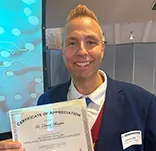
Dr. Boudon, a Doctoral Lecturer in Sociology, developed this seminar to support faculty in integrating community-based learning across disciplines. With over 20 years of experience integrating community-based learning into his own courses and guiding students through over 1,000 hours of service each semester with NYC nonprofit partners Dr. Boudon provided guidance to seminar participants–helping them to identify social issues, connect with community organizations, support volunteer work and engage their students in different forms of ethnographic research. The seminar included distinguished guests and locally based partners, such as the DYCD, the Boys & Girls Club of NY & Sunnyside Community Services.
Read about faculty work below!
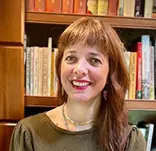
Course: SSN187 Urban Sociology
Assignment: Walking Tour of Long Island City: Analyzing Gentrification Through Community-Based Learning
This experiential learning assignment immerses students in the changing landscape of Long Island City (LIC) through a guided walking tour, looking to integrate historical analysis with contemporary urban issues. Students prepare by reading background materials on LIC’s history and studying NYC’s segregation map to understand demographic shifts and the process of gentrification. During the tour, students visit several key locations, including Queens Plaza and the location where the Five Point Graffiti Mecca once stood (destroyed). Historical photos are compared to present-day views to assess changes in infrastructure, resources, and identity.
Students document their observations in a notebook or phone, engaging in real-time reflection on gentrification impact. A final written reflection requires an analysis of demographic shifts using the segregation map, an assessment of gentrification’s positive and negative aspects and how this all connects to course concepts. The assignment fosters community-based learning by engaging with the neighborhood as a living classroom, encouraging students to critically evaluate urban transformation in LIC.
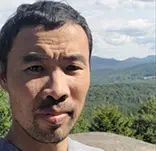
Course: SCC/SCB201 General Chemistry/General Biology
Assignment Name: Composting Garden Project
Students engage in community-based and experiential learning through a composting garden project at Smiling Hogshead Ranch and Grace Lee Boggs Garden in Sunnyside, Queens. Working with LaGuardia’s OER Librarian, Rena Grossman, this initiative introduces students to the science of composting, recycling, and gardening while actively participating in local sustainability efforts. Through hands-on experiences, students explore key chemistry concepts such as pH levels, fertilizers, and soil composition, connecting classroom knowledge to real-world environmental applications.
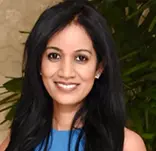
Course: BTM 106 Business Communication
Assignment: Drafting a Business Memorandum to Address the FIFA Corruption Scandal
Using a real-life event, students participate in an interactive simulation whereby they must place themselves in the shoes of a FIFA executive tasked with writing an internal business memorandum to address a developing scandal. The assignment looks to develop the practical business communication skills of students by having them work together to draft a business memorandum, effectively addressing the issue from an internal corporate perspective. The assignment also challenges students to apply their business knowledge to a real-world ethical dilemma, examining how FIFA confronted a deeply-rooted corruption scandal. Through online research, interactive group work and reflection, students analyze how the scandal was exposed and its impact on local communities and soccer fans worldwide.
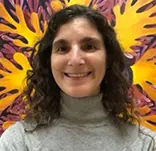
Course: SCG120 Introduction to Oceanography
Assignment: Exploring Ocean Sustainability Through Community-Based Learning
This hands-on assignment connects topics in oceanography to everyday consumer choices, encouraging students to investigate the human impacts on fisheries and marine ecosystems. Through fieldwork at local fish markets and supermarkets, students document the sustainability of the offered seafood and compare differences and similarities in their neighborhoods. Students analyze their findings in relation to cultural and demographic influences on seafood demand, while also assessing the role that government regulations play in sustainable fishing. This experiential learning project supports scientific inquiry and communication skills, fostering a deeper awareness of how personal choices impact global marine ecosystems.
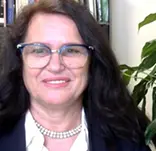
Course: MAT 115 College Algebra & Trigonometry / MAT 200 Precalculus
Project Title: Maximizing the Volume of an Open Box – An Application of Polynomial Functions
This inquiry-based project emphasizes problem-solving, global learning, and community-based learning. Students engage with packaging suppliers and delivery companies in New York City, such as The Boxery and New York Box, to understand the environmental impact of packaging materials and think about how reducing material consumption in packaging can mitigate climate change. By sourcing cardboard from local suppliers in the community, they gain insights into business and environmental challenges, the role of trees in carbon sequestration, and the necessity of reducing deforestation. Students analyze data and apply polynomial functions to maximize box volume while addressing sustainability, making for an interactive and interdisciplinary project.
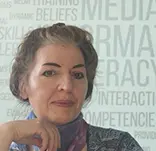
Course: SSP101, U.S. Power and Politics
Assignment: NYC Council and the Homelessness Crisis
Students combine theory with practice by engaging with the local politics of the New York City Council. Focusing on a specific political issue, such as homelessness in the city, students study the issue using resources from the Coalition for the Homeless and then investigate legislative actions being taken to address it. Students visit Councilwoman Julie Won’s office (26th council district), produce a journal log of activities and develop a presentation that focuses on connecting class theory with field practice. As a result of engaging with their community and community organizations such as the Coalition for the Homeless, students develop a deeper understanding of the civic education, while gaining practical insights into local governance and the role of city council members in addressing pressing policy issues.
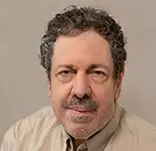
Course: SSN204 Crime & Justice in Urban Society
Assignment: See You in Court
Combating misperceptions of the criminal justice system promoted in media and anecdotal accounts, this assignment offers two experiential and community-based learning components. Students receive an orientation by a federal judge and her court team through a planned event that includes career discussions with a social work professional, federal prosecutor, and a veteran federal court judge. They each discuss their career trajectories and the everyday challenges of their positions. Next, students attend an actual federal court trial and observe proceedings. They are given directives on what to observe in terms of identifying various points of a criminal trial including observing interactions by the prosecution, defense attorneys, witnesses, the judge, and other members of the court team. Seeing the trial process play out in their own community provides an experiential learning experience that enables students to evaluate the strengths and weaknesses associated with the trial process.
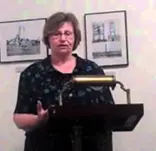
Course: SSN107 Urban Sociology
Assignment: Community Observation & Analysis
Students select a community space to observe and analyze through a sociological lens that includes taking note of social roles & norms, interactions and structures. While students are free to choose a community space of interest, they are provided with information on some neighborhood organizations, such as the Western Queens Community Land Trust, which runs town hall meetings, and Woodside on the Move, a recreational & educational activity organization. Observations are followed by informal interviews with members engaging in the selected community space. Students incorporate insights into their analysis and reflections, which includes considering their own role in a variety of community spaces.
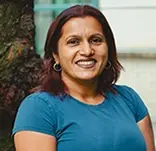
Course: BTO 280 US Healthcare Administration & Delivery
Assignment: Leadership in Healthcare
Students interview a healthcare leader to explore leadership styles, career paths, and challenges. They connect with leaders in hospitals, clinics, public health agencies, or long-term care facilities. With guidance, they research organizations, develop questions, and examine career trajectories. This assignment offers a real-world perspective on leadership, helping students reflect on lessons learned and how they align with their own career goals.
Highlight on Humanities Alliance Fellows
In 2023-2025, The GEL Office proudly welcomed and supported two Humanities Alliance Fellows, Natalia Villarroel Torres and Michelle Rendón Ochoa. They have contributed to preparing pedagogical forums and gathering staff resources, especially around the United Nations Sustainable Development Goals (SDGs) and methods for facilitating difficult conversations in the classroom. Their efforts also extend to NGO and community partner outreach, development of a holistic experiential learning rubric in collaboration with Urban Studies faculty, design and facilitation of zine-making workshops, and administrative tasks to support the Office’s initiatives. Michelle and Natalia are excited to put their common interests (archiving, orality, voice, multilingualism, among others) in service to the LaGuardia Community College.
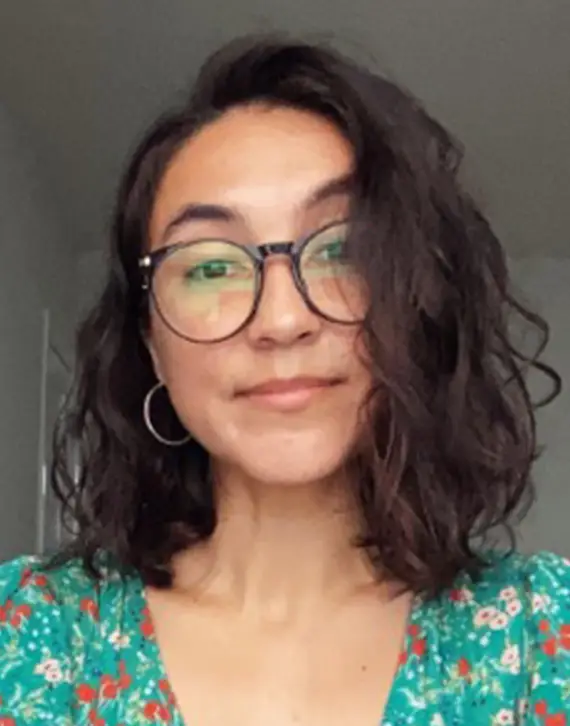
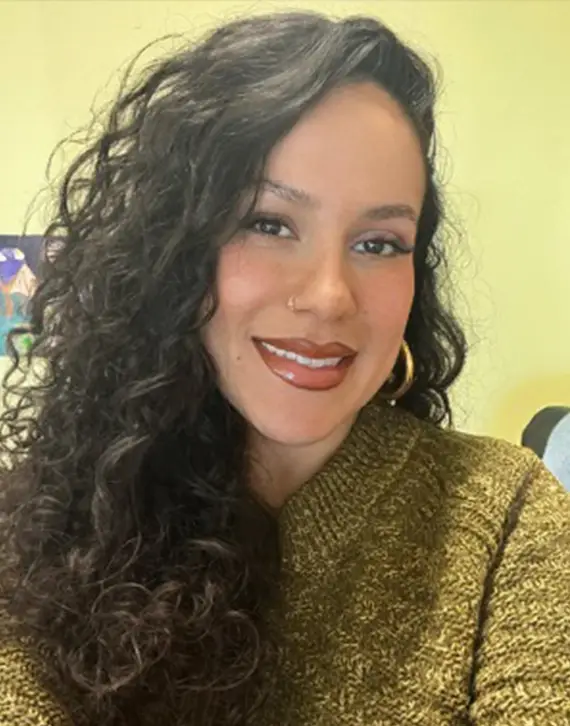
Experiential Learning Through Zine-Making
The Humanities Alliance Fellows Natalia Villarroel Torres and Michelle Rendón Ochoa developed and facilitated an engaging zine-making workshop From Page to Packet: Making Your Poetic Zine in an English 102 class. The workshop enabled students to articulate creatively their interpretations of poetry in relation to their own identities.
